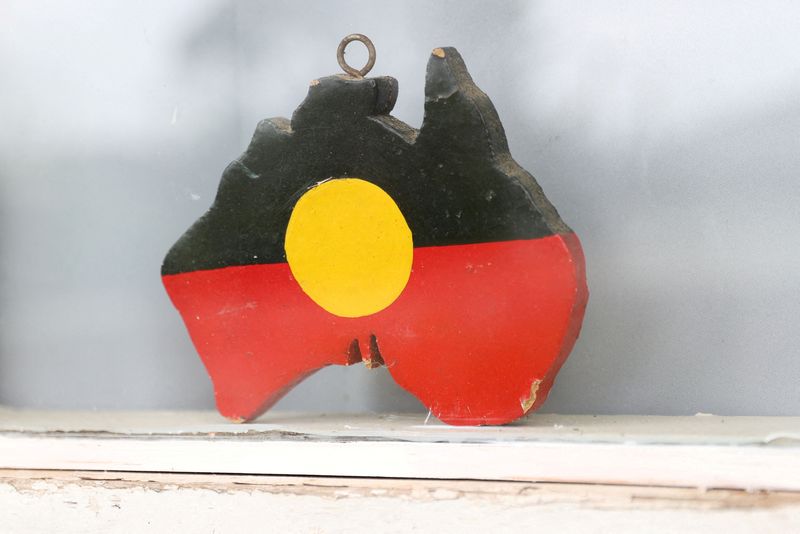
© Reuters. FILE PHOTO: A depiction of the Australian Aboriginal Flag is seen on a window sill at the home of indigenous Muruwari elder Rita Wright, a member of the “Stolen Generations”, in Sydney, Australia, January 19, 2021. Picture taken January 19, 2021. REUTERS
SYDNEY (Reuters) – Australia’s Prime Minister Anthony Albanese voted on Saturday in a referendum to recognise the country’s Indigenous people in the constitution, a week from a national polling day on the measure that is trailing in opinion surveys.
Albanese’s centre-left Labor government backs the change, while the opposition Liberal-National conservatives urge a vote of “No”. Opponents lead the yes camp by 53% to 38%, according to an opinion poll this week.
If the “Voice to Parliament” referendum is approved on Oct. 14, it would enshrine Indigenous people in the constitution and set up an advisory body to give Aboriginal and Torres Strait Islander people input on policies that affect them.
Most Indigenous people favour the referendum, but some say it is a distraction from achieving practical and positive outcomes and would not fully resolve the issues affecting them.
The political opposition says the measure would not provide practical outcomes for Indigenous people and that regional and local committees in their communities could be more effective than a national body.
Taking advantage of early voting, Albanese posted a photo to Social media platform X, formerly known as Twitter, showing him casting his vote with his son Nathan Albanese.
“I cast my vote today for Yes and I did so proudly in the knowledge that this is the request of Indigenous Australians,” Albanese told reporters, according to a transcript.
A spokesperson said the prime minister voted in the Sydney suburb of Marrickville, in Australia’s most populous state, New South Wales, where 4.2% of people identify as Indigenous, slightly higher than the nationwide 3.8%, according to the latest census figures.
Last month, thousands rallied in state capitals across Australia in an effort to buoy the yes campaign, which sees the measure as a way to achieve better outcomes for Aboriginal and Torres Strait Islander people.
Marginalised by British colonial rulers and not mentioned in Australia’s 122-year-old constitution, Indigenous Australians face disadvantages including discrimination, poor health and education outcomes and high incarceration rates. Their life expectancy is about eight years lower than non-Indigenous people.








